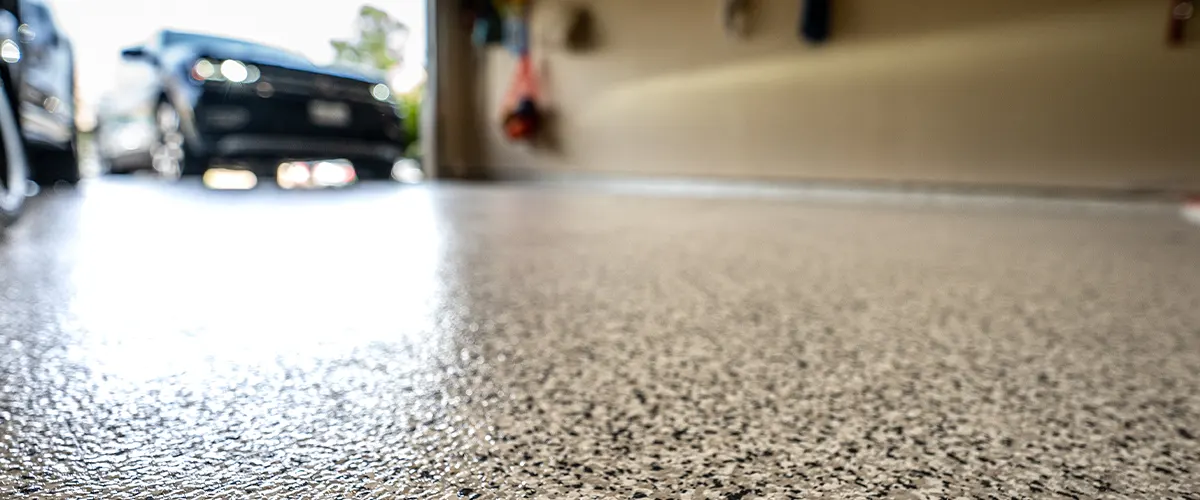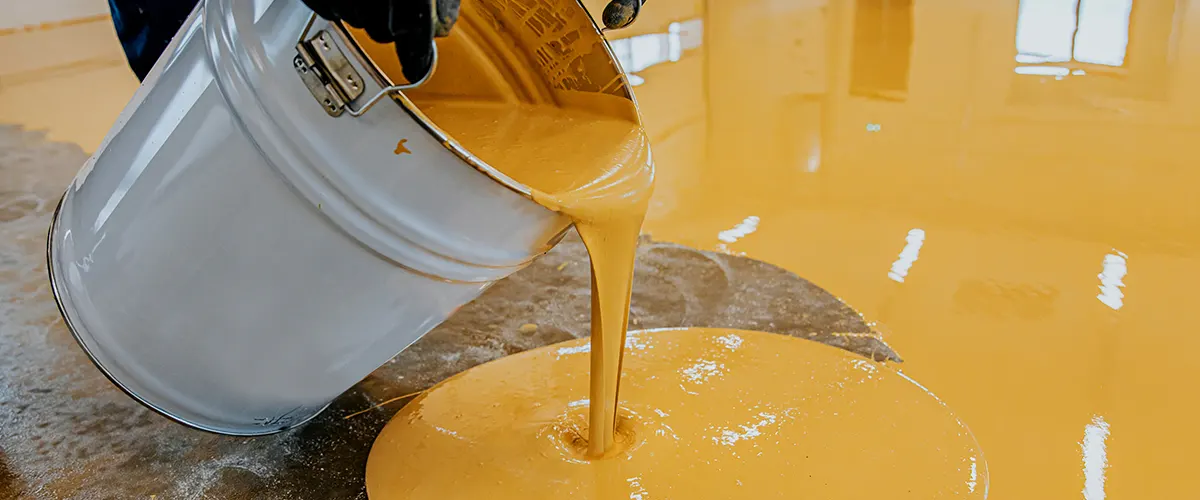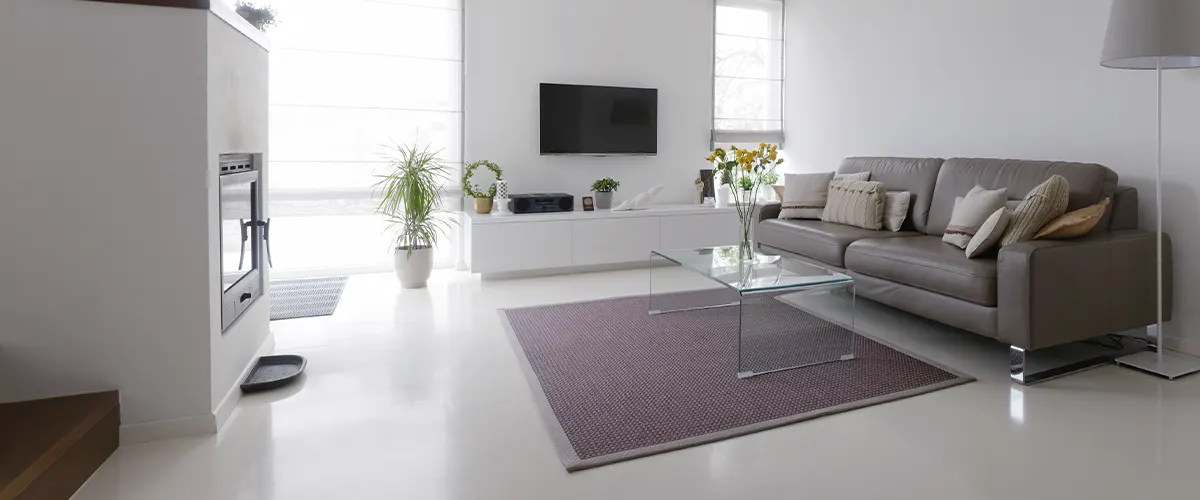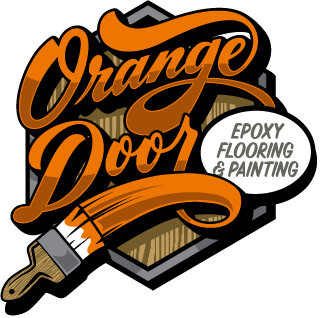Do you need a tough, durable coating for your industrial or commercial flooring? If so, you may be considering epoxy or polyaspartic flooring coatings. These specialized coatings have found wide application in the consumer and industrial marketplace. In this post, we’ll focus on polyaspartics – a relatively new entrant to the industrial coating market. We’ll describe these coatings, the best applications for polyaspartic-based paints, and compare them to more widely known epoxy coatings.
What Is Polyaspartic Flooring?

What Is Epoxy Flooring?

Comparing Epoxy and Polyaspartic Flooring Systems
Epoxy Floor Coating
Epoxy flooring is known for its superior strength and durability. It can withstand heavy foot traffic and is resistant to most chemicals, including gasoline, oil, acids, and alkalis. Epoxy flooring also has excellent adhesion properties, which makes it great for areas where moisture may be an issue.
The downside of epoxy flooring is that it takes a long time to install—typically three days—and the curing process must be done slowly to ensure a good bond between the substrate and the coating material. Additionally, because of its slow curing process, epoxy tends to be more expensive than other coatings like polyaspartic.
Polyaspartic Floor Coating
Conclusion
Polyaspartic flooring and epoxy flooring are two popular choices for industrial and commercial applications. There are pros and cons to each type of flooring, so it’s important to choose the right one for your needs. Polyaspartic flooring is more durable and easier to clean than epoxy, but it’s also more expensive. Epoxy flooring is less expensive, but it’s not as durable or easy to clean.
Ultimately, the decision between epoxy and polyaspartic flooring comes down to personal preference and budget. If you need help choosing the right type of flooring for your needs, get in touch with us today. We’ll be happy to answer any questions you have about these two types of flooring or help you find the perfect option for your space.

